News
You can now connect with Professional Education and Extended Learning on social media!

Highlighted by Top 20 graduate programs across disciplines ranging from physical therapy and nursing to entrepreneurship and trial advocacy, Baylor University graduate and professional programs were among those nationally ranked in the 2024 Best Graduate Schools rankings, released today by U.S. News& World Report.
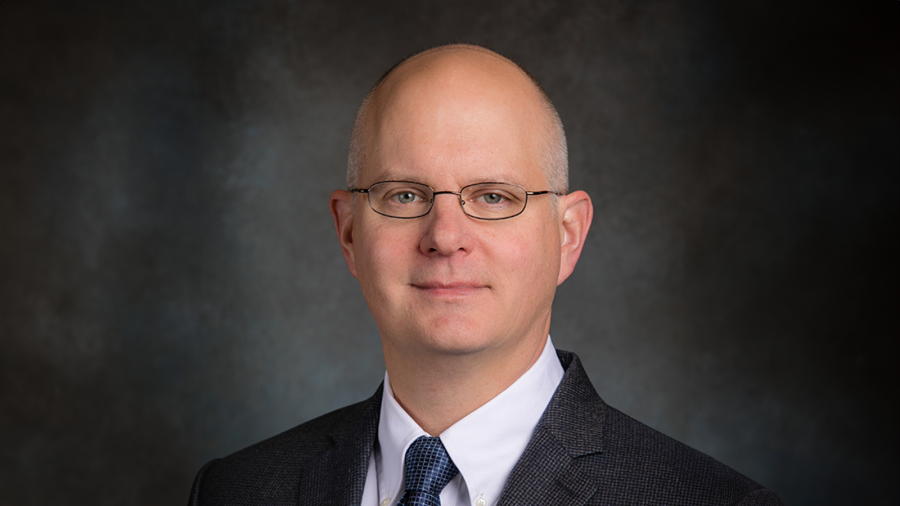
Baylor University’s Robbins College of Health and Human Sciences is pleased to announce the appointment of Brian A. Young, PT, DSc, as Chair of the Department of Physical Therapy, effective May 1, 2024.

At Baylor’s Hankamer School of Business, MBA students follow the footsteps of impactful communicators by taking a broad range of practical courses in communication. In this article, two communications instructors share the guidance they impart to their MBA students.
Graduate Professional Education (GPE) is working in collaboration with Baylor’s colleges and schools to expand the portfolio of offerings and increase enrollment. It is our goal to bring quality Baylor offerings rich in Christian values to professionals from across the nation by providing courses through various mediums. Through Baylor’s academic rigor, professionals will gain skills they can put into practice immediately and graduate from our programs with the knowledge to become leaders in their industry.

Baylor University has teamed up with Edwards Performance Solutions to offer their renowned Cybersecurity Maturity Model Certification (CMMC) bootcamp. Completion of the bootcamp enables attendees to sit for the Certified CMMC Professional (CCP) certification exam. CMMC, described as a game changer for DoD contractors, will be included in select DoD Requests for Information and Requests for Proposals.
Companies are rapidly implementing AI-enabled technology to boost productivity, reduce costs and improve efficiency. AI has been a part of the workplace for years, but the emergence of generative artificial intelligence (AI) via applications like ChatGPT, Midjourney and Bard is helping organizations identify new use cases and accelerate their digital roadmaps. Organizations are reshaping how work gets done on the front-line. Therefore, learning and development (L&D) departments must assess how they enable the people who do this work every day.
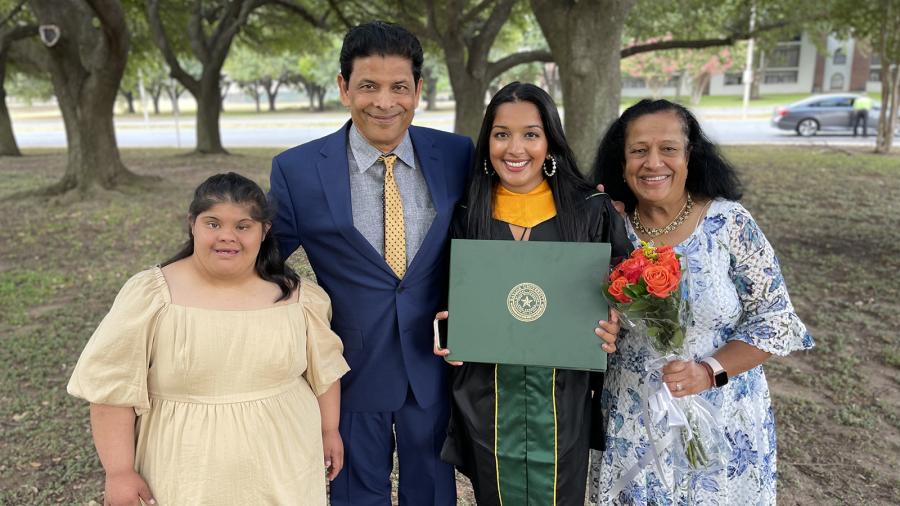
Baylor University graduate Swinita Shah shares about her experience in the Online Master of Science in Communication Sciences and Disorders program, including her inspiration for becoming a speech language pathologist and the aspects of the program that helped her reach her goals.
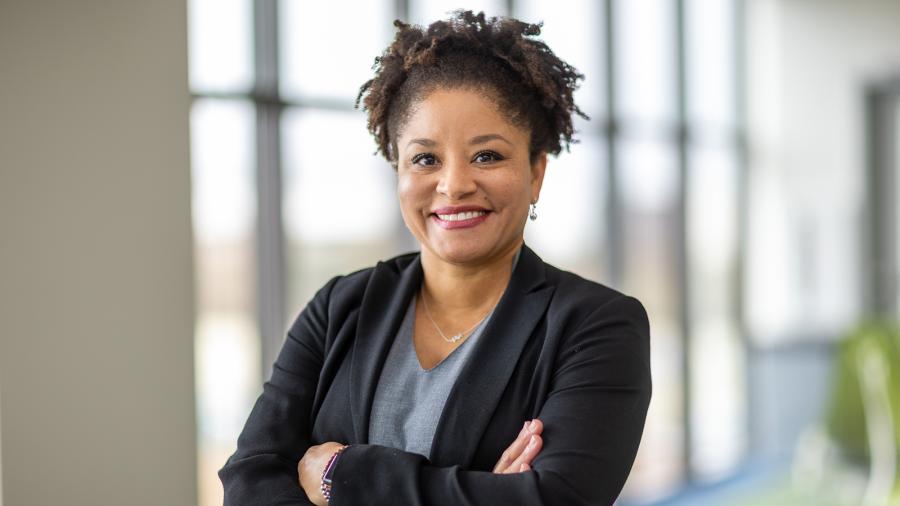
Baylor University’s Robbins College of Health and Human Sciences is pleased to announce the appointment of Meredith Quinene, DHSc, MPAS, PA-C, DFAAPA, as the inaugural director of the University’s recently announced Physician Assistant Studies program.
I meet many students working in online education, but after one special event on campus with the Baylor EdD program, I knew I had to sit down and talk more with one student in particular. Carolyn Price is a current student in cohort 11 of Baylor’s online Doctor of Education program. During the on-campus immersion where students come to town to work on their dissertations, the speaker was filling some break time and asked who had been married the longest. Many hands flew up in the air, claiming 20 years, 25 years, then 40 years. Finally, a student claimed that Carolyn had them all beat with how long she had been married. Carolyn had never really admitted her age before to her cohort of fellow students, but she proudly proclaimed that she and her husband had been married for 60 years. Immediately, the students erupted in awe and amazement at how that could even be possible. She credited her marriage success to forgiveness, understanding, and the Lord.
Read Carolyn’s story in her own words as Cece Lively, Director of Portfolio Management for Graduate Professional Education sits down to discuss her journey.
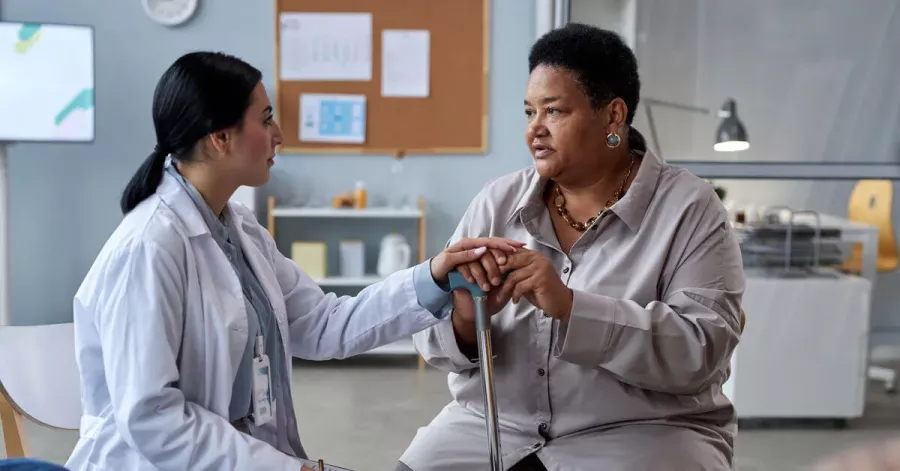
In the U.S., Psychiatric Mental Health Nurse Practitioners (PMHNPs) are part of the second largest segment of behavioral health professionals. So, what does a psychiatric nurse practitioner do?
Psychiatric mental health nurse practitioners (PMHNPs) make a meaningful difference every day. Through holistic psychiatric mental health care, they change the lives of individuals, families, groups, and entire communities.
Read further for highlights of the psychiatric mental health nursing field, PMHNP responsibilities, and the benefits of this fulfilling career. You will also learn how nurses with a Bachelor of Science in Nursing (BSN) can start a journey to becoming a PMHNP.
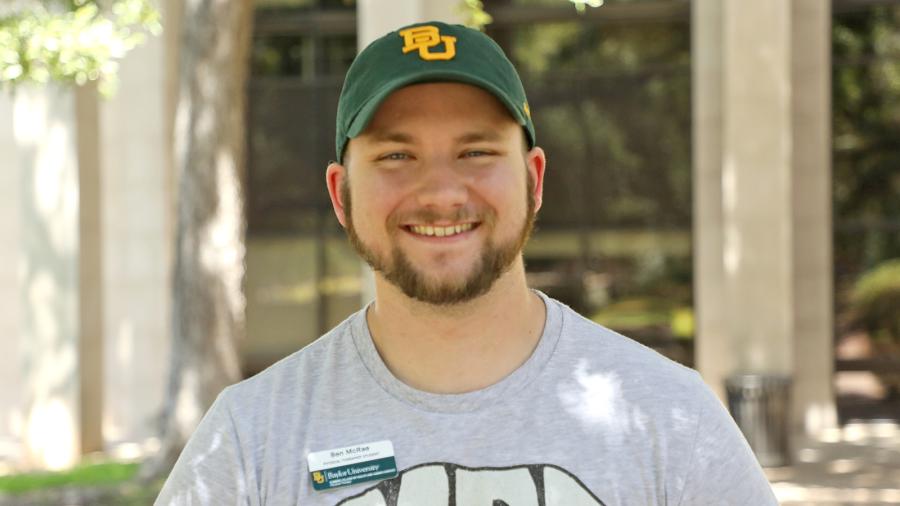
Current Baylor DPT student Ben McRae, a certified Physical Therapy Assistant, discusses his journey to and in the Baylor Doctor of Physical Therapy Program, including how he manages his school-home-work balance and his PT professional involvement in his home state of Louisiana.
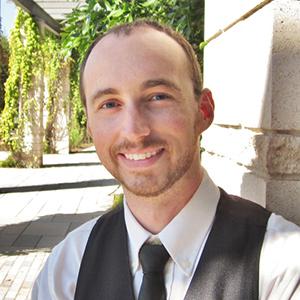
While distance education is new for most of Baylor, Dr. Nicholas Werse has been a distance educator for several years. Werse is the Graduate Writing Coordinator for Baylor School of Education’s EdD in Learning and Organizational Change, the university’s largest online doctoral program, housed in the Department of Curriculum & Instruction. Werse runs a fully online writing center to coach the doctoral students with their academic writing. So we asked Dr. Werse for some advice about online interactions in academia.
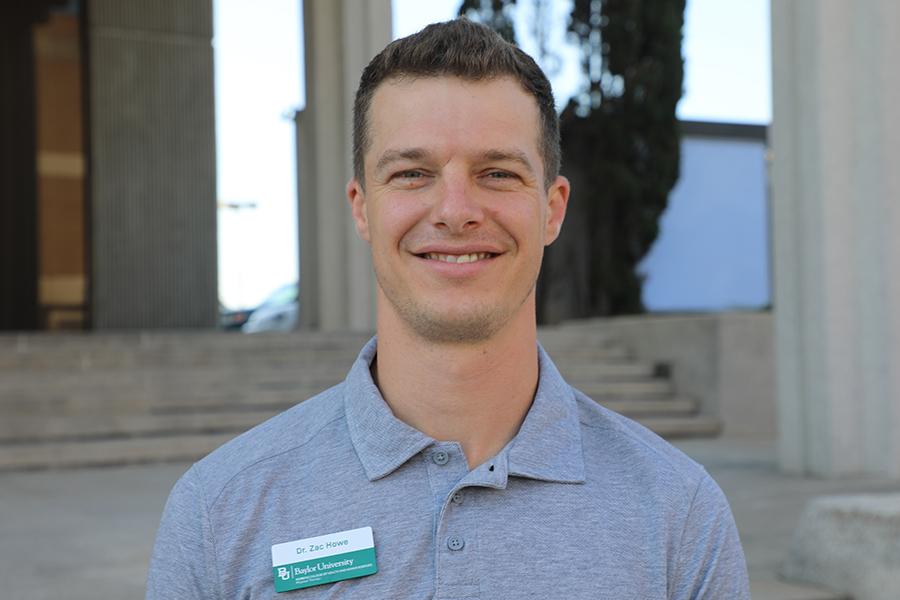
Baylor Doctor of Physical Therapy alumnus Zac Howe shares about his experience in the program and how a winding journey, filled with hard work and commitment, has led him to become an NBA coach and an adjunct faculty member for the DPT program.

In the past, “hands-on learning” wasn’t usually the first thing that came to mind when someone talked about a well-rounded business school education. Business concepts were taught primarily through lecture and rote memorization. Now considered a vital part of the business curriculum, experiential learning opportunities are being increasingly integrated into the Baylor Business experience.
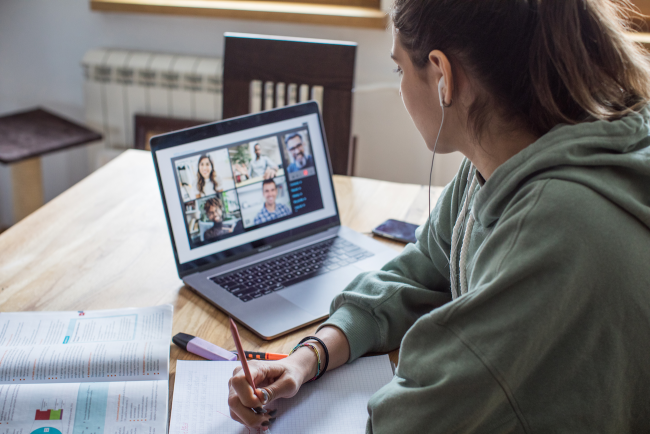
A new report shows misalignments in institutional and student views on preferences for virtual instruction and experience with generative AI. More than half of faculty members say they prefer face-to-face classes over hybrid or online delivery, but nearly seven in 10 students say they prefer an instructional model with at least some virtual component. Three-quarters of students favor digital course materials over print, while professors are split 50-50. And 60 percent of faculty instructors opt to send students to the traditional bookstore as their primary method of course material access, though barely 15 percent of students say they prefer to purchase new print materials.
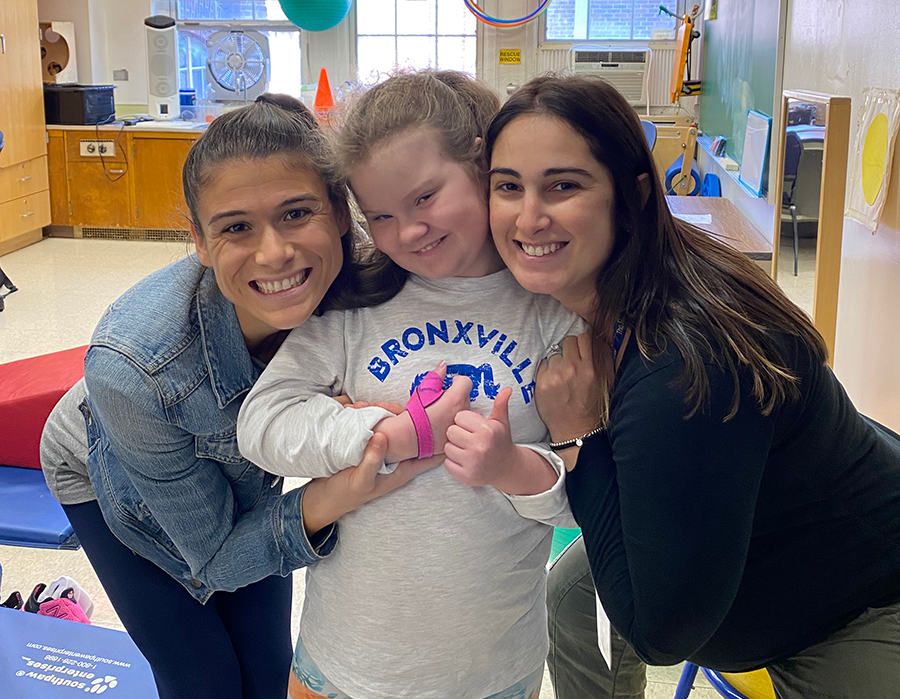
Using skills developed from her coursework and with the support of her faculty instructor, Post-professional Doctor of Occupational Therapy student Jenna Fanelli partnered with her physical therapist colleague to apply for—and receive—a grant to further collaboration between their two professions.

Supporting the efforts to fuel nursing education growth and help with the tremendous shortage of mental health providers here in Texas and the U.S., in August 2023, the Baylor University Louise Herrington School of Nursing (LHSON) will start a Psychiatric Mental Health Nurse Practitioner (PMHNP) track within its Doctor of Nursing Practice (DNP) graduate degree program. The LHSON aspires to become part of the solution to the national mental health crisis, and this track will prepare registered nurses to become PMHNPs to address the mental and behavioral needs of individuals and help solve the critical shortage of mental health care providers.

As higher education looks to ensure that students are provided the most innovative, accessible and engaging learning experience, virtual reality (VR) continues to be part of that conversation. Early uses of VR in instructional experiences have positively impacted students who might otherwise be less engaged or less successful in STEM coursework.
In this article, EAB’s Presidential Experience Lab presents the four key lessons and three broad questions to consider as we look to the future of what VR and the ‘metaverse’ might mean for higher education.

Baylor has been pioneering in the professional education space for five years, bringing Master’s and PhD programs online to support learners while allowing them to continue to work and raise a family while prioritizing their career journey. Baylor, recently recognized as an R1 Research Institution, brings its world-renowned faculty and the Baylor community to students across Texas and the country. Below are four ways Baylor continues to innovate and be a leader in online professional education.
Baylor University, in collaboration with edX, to launch a MicroMasters® program in Social Work. The MicroMasters course content gives prospective students a stackable credential applicable to the Social Work field and insight into degree-earning coursework, providing an accessible pathway to receiving a full master’s degree.
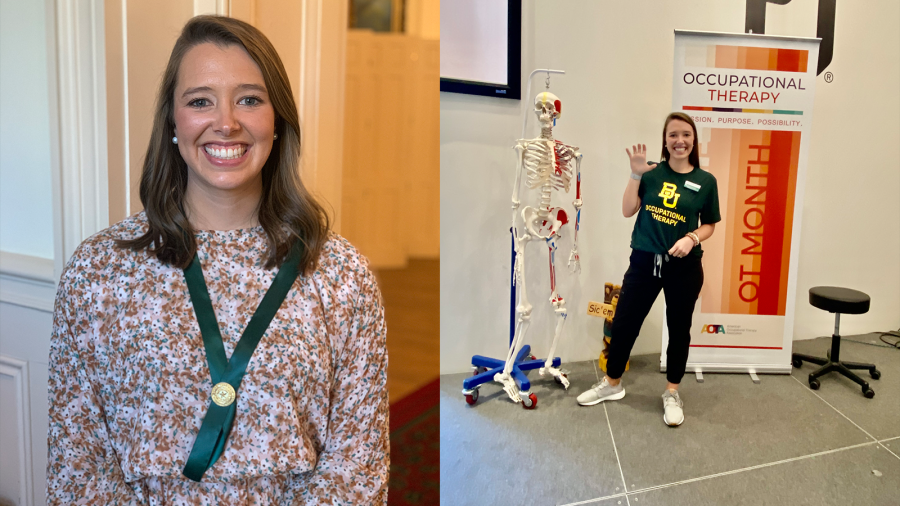
Thanks to a last name that is alphabetically first in line, Kellam Addison McQuitty will become the very first Entry-level OTD graduate when she crosses the commencement stage. In this Q&A, Kellam shares about her experience as a student and the foundational contributions she and her classmates made to an already exceptional occupational therapy program.

It's always fun to share the great work of our Baylor Bears. Please help me celebrate Jennifer Gonzales and Erika Neuman, students in our online Doctor of Education (EdD) in Learning and Organizational Change program. They each received awards at the School Science and Mathematics Association (SSMA) conference.
The Doctor of Education (Ed.D.) in Learning and Organizational Change online program housed within Baylor University’s Department of Curriculum and Instruction in the School of Education has been named a Carnegie Project on the Education Doctorate (CPED) Program of the Year 2022 winner. The CPED Program of the Year award is given annually to one or more institutions whose program demonstrates that it is distinctive, innovative and useful to other CPED members. This honor will be awarded in October at the annual CPED Convening in Pittsburgh.
How do you create online or hybrid courses with an ethos of inclusion and equity embedded throughout? As someone who has taught in virtual classrooms for 12 years, I have been writing this series on quick, practical ways to get better at online teaching for latecomers. This month’s column turns to inclusive teaching in a virtual classroom.
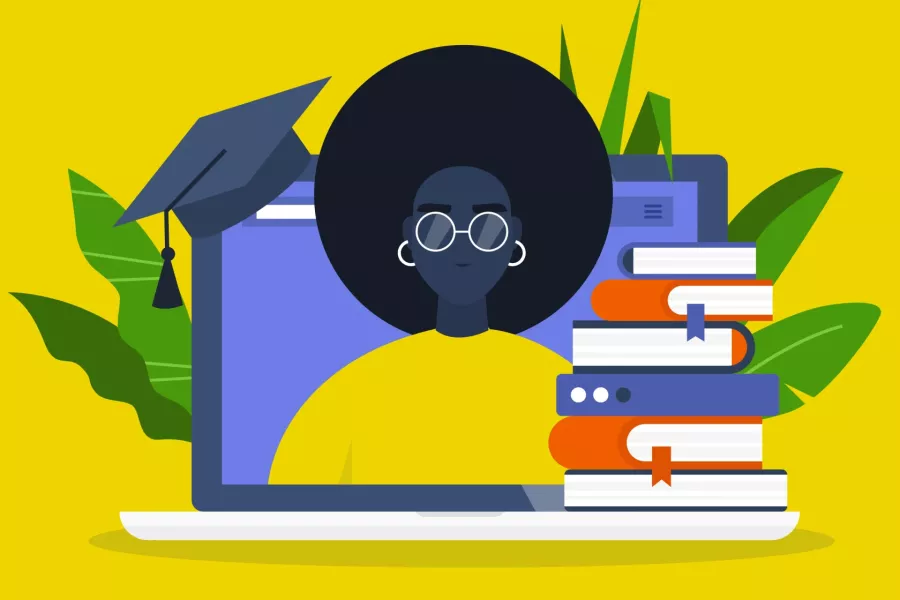
How do you create online or hybrid courses with an ethos of inclusion and equity embedded throughout? As someone who has taught in virtual classrooms for 12 years, I have been writing this series on quick, practical ways to get better at online teaching for latecomers. This month’s column turns to inclusive teaching in a virtual classroom.
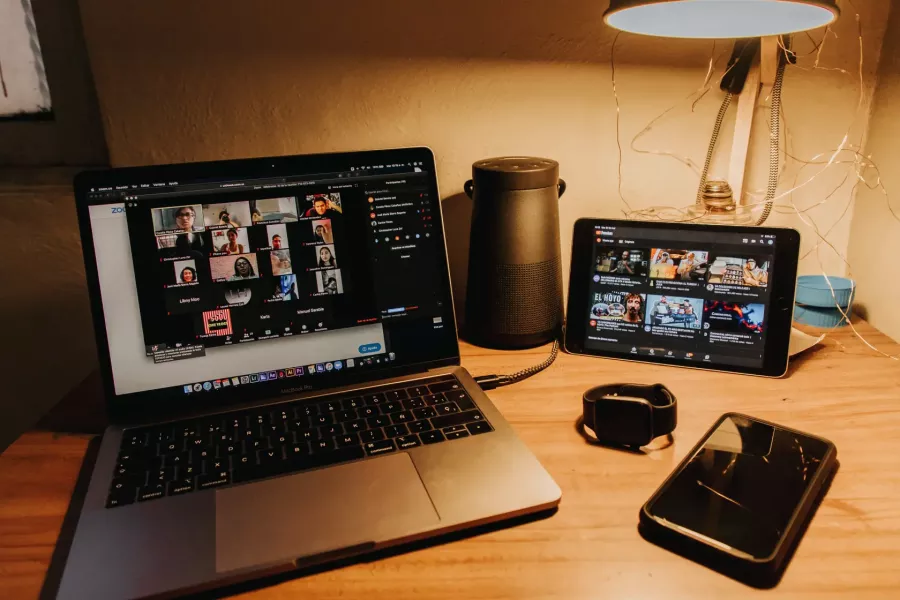
Faculty members and students together are diving into a new tool with little to no experience with it, technically or culturally. As you lead a class discussion or a meeting on Zoom, it’s all too easy to lose people in the process. But the principles of inclusive teaching can help you reach students in a virtual classroom, just as in a physical one. As longtime advocates of inclusive teaching — the practice of embracing student diversity and designing courses in ways that reach all students here are eight suggestions to help you keep inclusiveness in mind along the way.